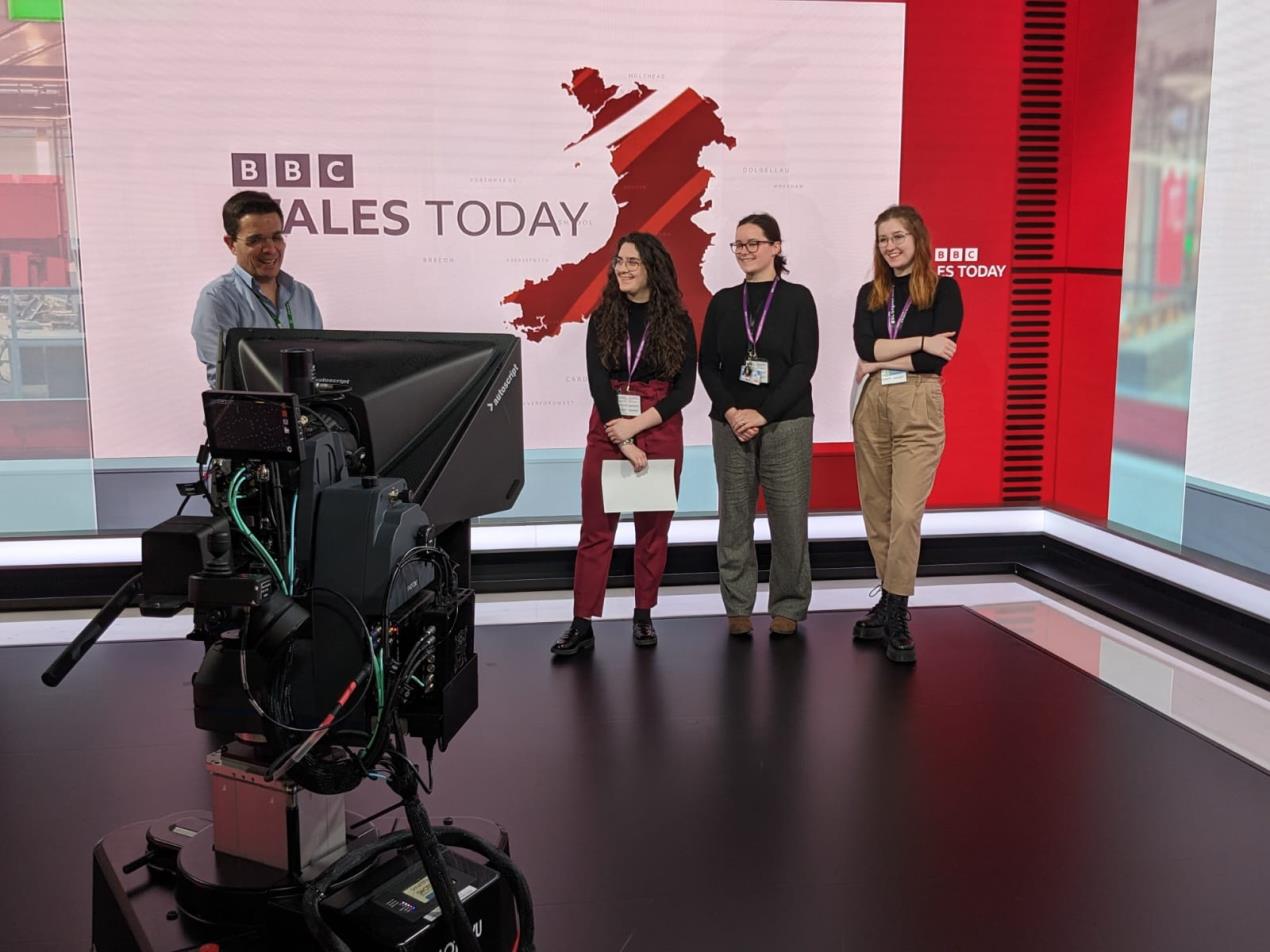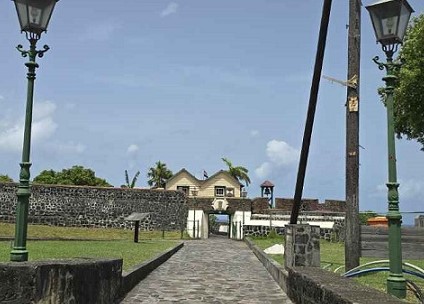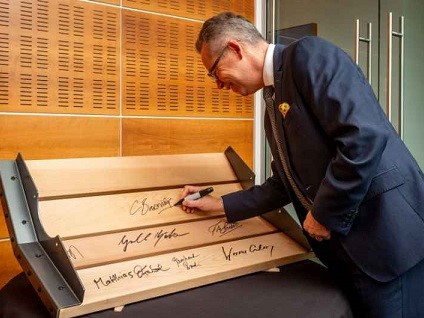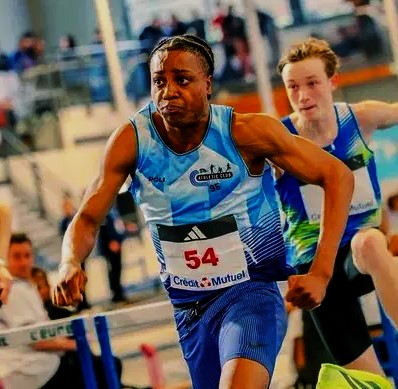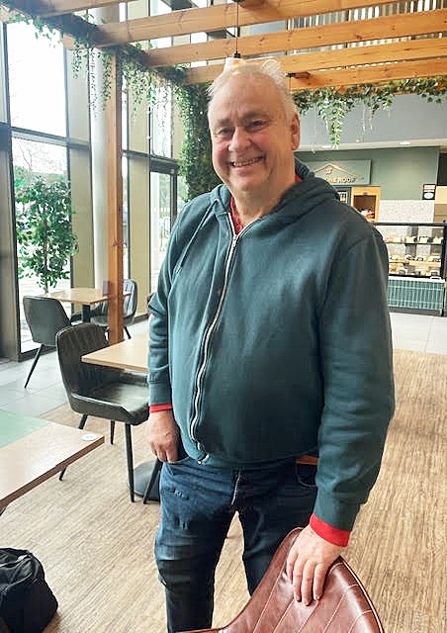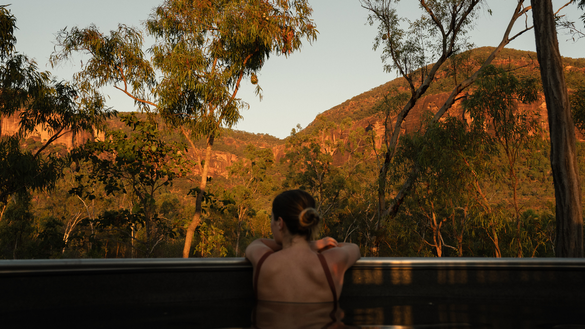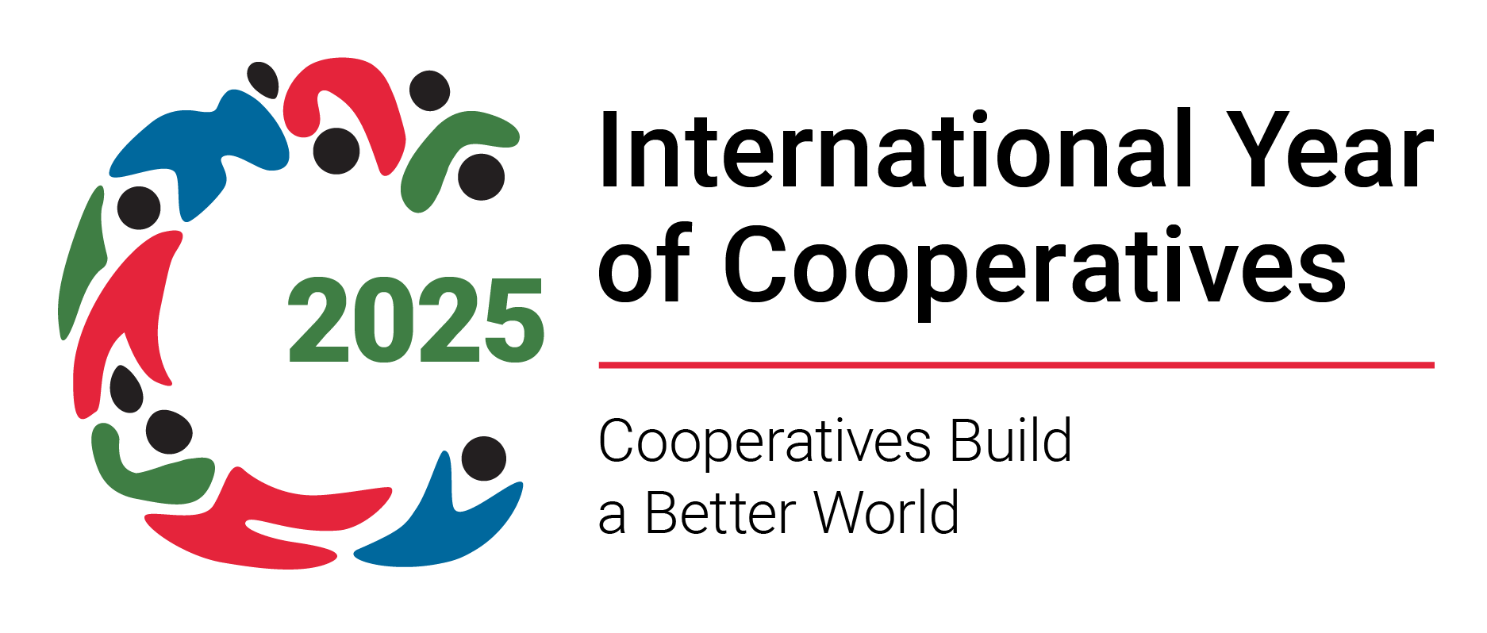University of Wolverhampton students got the opportunity to shadow a sign language interpreter working on the lunchtime news at BBC Cymru Wales in Cardiff recently.
Final year students studying for the British Sign Language (BSL)/English Interpreting degree, shadowed Tony Evans, sign language interpreter, as he prepared for the news bulletin, learning about the preparatory and behind-the-scenes processes involved.
Sarah Bown, Senior Lecturer in British Sign Language (BSL) Interpreting, Deaf Studies and Master’s Interpreting degrees at the University, said: “This joint learning and teaching initiative provided the perfect transition from simulation to the real world, seeing first-hand at the BBC the skills they are learning, demonstrated live to a real time audience.
“Working closely with Tony we were able to incorporate into the visit, preparatory time for the students to view the news script, discuss translation techniques learnt to date and critically reflect upon the strategies used by Tony post his interpreted news broadcast. This is another fine example of the long-established tapestry of professional networks forged by the subject's lecturing staff, directly benefiting students with extra curricula, enriching learning experiences.”
The University of Wolverhampton’s professional TV studio, part of the Wolverhampton Screen School, provides rich learning experiences for students studying on this programme. “Working regularly alongside skilled media technicians and interpreting lecturing staff, the students develop and hone in-vision strategies and skills for future professional practice and employability.
“The University facilities provide a safe simulated environment for them to craft their translations from English into British Sign Language in a film studio setting, to camera, for an audience whose first or preferred language is BSL. And this joint learning and teaching initiative provides the perfect transition from simulation to the real world, seeing first-hand at the BBC the skills they are learning.”
Tony said: “Having seen the University's TV studio and Screen School resources on social media, I got in touch with Sarah Bown to see if we could put our heads together. Knowing how supportive the news team are in Cardiff, I felt sure we could offer the next generation of interpreters an opportunity that I certainly never had before my first taste of live TV work at BBC Pebble Mill, Birmingham more than three decades ago.
“Interpreting in front of live cameras can be frightening for some, but others will take it in their stride. The important thing is, you never really know how you'll react until you try it, and this experiential structured ‘taster’ opportunity will help these interpreters in training, who will shortly emerge into professional practice, to make informed decisions about their forthcoming career and future working aspirations.”
Tabitha Collins, one of the students who visited, said: “How lucky are we to do things like this as part of our degree! We’ve been working in the TV studio weekly this semester on our ‘Translation Agency’ module, and this visit to the BBC studio was a perfect extension to this.
“Translation work in a TV studio with cameras and a translation team to work with, is very different to the regular face-to-face BSL translation/interpreting work that you would be doing in the community on a daily basis as a professional interpreter. When working to camera in this way, you normally don’t know the reach of your audience and you have to ensure that your BSL rendition can be easily understood by as many people as possible. On top of this, you can be given any text possible to translate! We’ve definitely learned a variety of techniques in our modules, working with a variety of texts, but nothing is like being able to do it for real!
“We had the best day possible at the BBC, going behind the scenes, learning the process of sight translation specifically for the news, seeing how the interpreter and technical team work together. It was such an enriching experience, and even better to share it together with friends also on our degree course.”
The University is celebrating 30 years of success in sign language interpreter education and training this year. The aim back in the 1990s was to “broaden opportunities for Deaf people, facilitate Deaf people’s access to Higher Education and raise Deaf awareness within all areas of society and work”.
The staff team, many of whom are the original and early members of the subject, comprise of deaf and hearing staff and demonstrate the highest concentration and level of professional qualification and recognition as interpreters, deaf translators, linguists, and the first programme to have a member with the prestigious International Association of Conference Interpreters (AIIC) accreditation. All vigorously disseminate the pioneering teaching, learning and research carried out, regionally, nationally and internationally.



